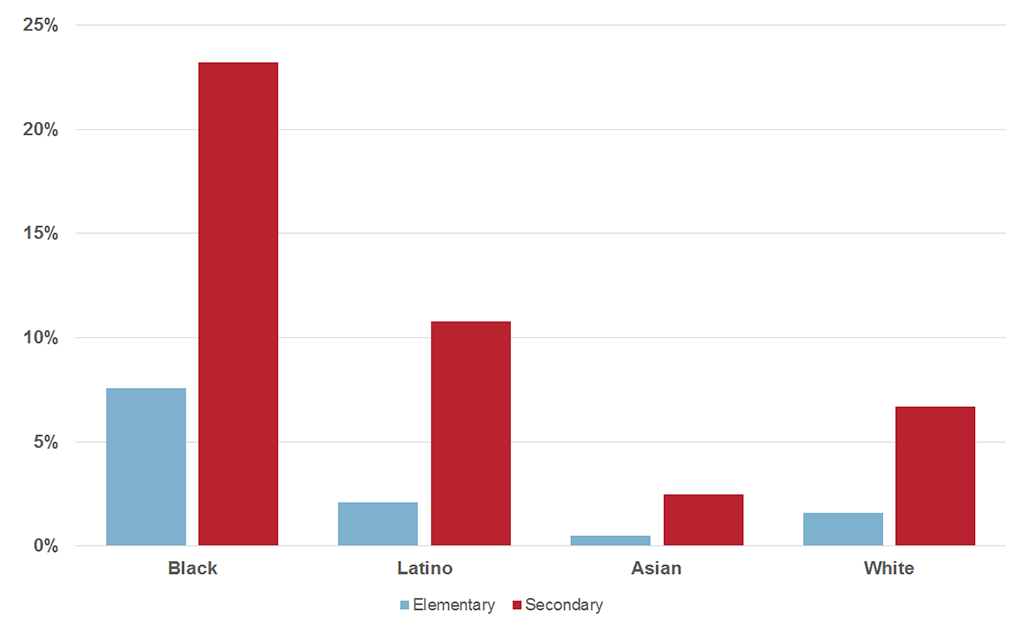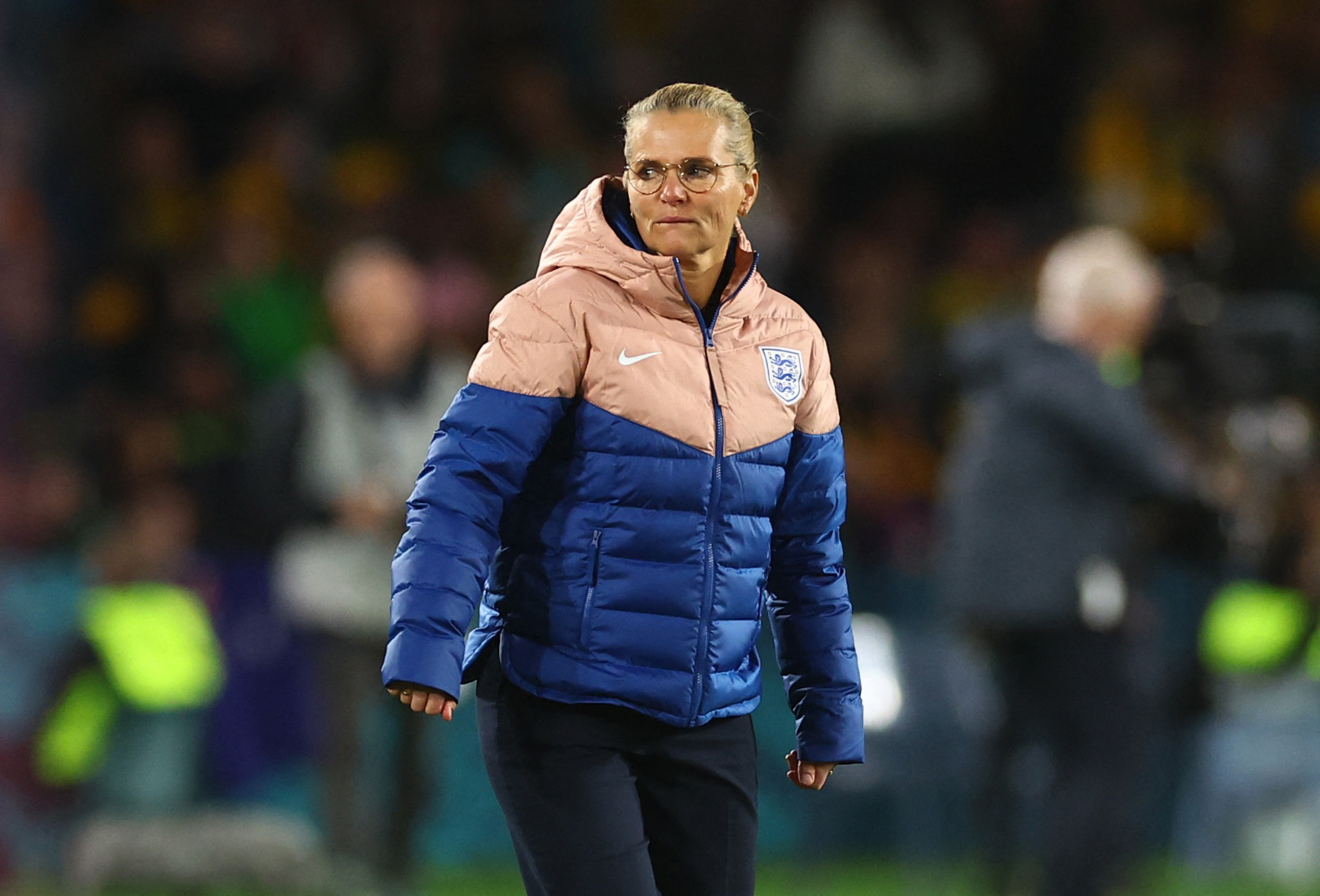School Suspension: A Counterproductive Approach To Discipline?

Table of Contents
The Negative Impact of School Suspension on Academic Performance
School suspension significantly disrupts a student's education and has a detrimental effect on their academic performance. The immediate and long-term consequences of this disciplinary action far outweigh any perceived benefits.
Increased Absenteeism and Missed Learning
Suspensions directly translate to missed classroom instruction, leading to a cascade of negative academic outcomes.
- Increased truancy: Students suspended from school are more likely to skip school even after the suspension ends, perpetuating a cycle of absenteeism.
- Missed tests and assignments: Suspensions often coincide with crucial assessments and deadlines, resulting in incomplete work and lower grades.
- Falling behind peers: The missed instruction makes it challenging for students to catch up with their classmates, leading to feelings of frustration and disengagement.
- Difficulty catching up: Even with extra help, regaining lost ground after a suspension can be a significant hurdle, impacting a student's overall academic trajectory.
Studies consistently show a strong correlation between school suspension and increased likelihood of dropping out. A 2018 study by the National Education Association, for example, found that students suspended multiple times were significantly more likely to leave school before graduation.
The Social and Emotional Consequences of Isolation
Beyond the academic repercussions, school suspension carries profound social and emotional consequences. The isolation imposed by suspension can exacerbate existing mental health challenges and create new ones.
- Increased risk of depression, anxiety, and social withdrawal: The sense of isolation and rejection can trigger or worsen feelings of depression, anxiety, and social withdrawal.
- Damage to self-esteem and sense of belonging: Suspension can significantly damage a student's self-esteem and sense of belonging within the school community. It reinforces feelings of failure and inadequacy.
Educational psychologists emphasize the importance of a supportive and inclusive school environment for healthy student development. School suspension, by its very nature, undermines this crucial aspect of a child's education.
Alternative Discipline Strategies and Their Effectiveness
Fortunately, effective alternatives to school suspension exist, offering a more humane and productive approach to student discipline.
Restorative Justice Practices
Restorative justice focuses on repairing harm caused by misbehavior and fostering a sense of responsibility and accountability among students.
- Conflict resolution: Students involved in conflicts are encouraged to participate in restorative circles, allowing them to understand the impact of their actions on others and make amends.
- Mediation: Neutral third parties facilitate conversations between students and those affected by their behavior, helping them find mutually agreeable solutions.
- Peer support: Students learn to support one another and address conflicts peacefully through peer mediation and mentoring programs.
- Community service: Engaging in community service can help students understand the consequences of their actions and contribute positively to their community.
Numerous schools have successfully implemented restorative justice programs, demonstrating a reduction in disciplinary incidents and improved school climate.
Positive Behavior Interventions and Supports (PBIS)
PBIS is a proactive approach to school discipline that emphasizes positive reinforcement and preventative measures.
- Clear expectations: Establishing clear behavioral expectations and communicating them consistently to all students.
- Positive reinforcement: Rewarding positive behaviors through praise, recognition, and incentives.
- Consistent consequences: Applying consequences fairly and consistently for inappropriate behaviors.
- Data-driven decision making: Tracking behavioral data to identify trends, adjust interventions, and evaluate the effectiveness of the PBIS program.
Research shows that PBIS significantly reduces suspensions and improves overall school climate by fostering a more positive and supportive learning environment.
In-School Suspension and its Advantages
In-school suspension (ISS) offers a viable alternative to out-of-school suspension (OSS), allowing students to remain on campus while facing disciplinary consequences.
- Continued academic engagement: Students in ISS can continue their studies, minimizing academic disruption.
- Access to support services: They have access to counselors, tutors, and other support staff to address the underlying causes of their misbehavior.
- Reduced disruption to learning: ISS avoids the significant learning loss associated with OSS.
Studies comparing ISS and OSS show that ISS is significantly more effective at reducing recidivism and improving academic outcomes.
The Long-Term Consequences of School Suspension
The consequences of school suspension extend far beyond the immediate academic and social impact.
Increased Risk of Juvenile Delinquency and Criminal Activity
A substantial body of research demonstrates a strong link between school suspension and involvement in juvenile delinquency and criminal activity.
- Increased contact with the juvenile justice system: Suspensions often lead to increased contact with law enforcement and the juvenile justice system.
- Higher likelihood of future arrests: Students with a history of suspension are more likely to be involved in criminal activity later in life.
Data from the US Department of Justice shows a clear correlation between school suspension and later involvement in the criminal justice system.
The School-to-Prison Pipeline
School suspension plays a significant role in the school-to-prison pipeline, a disturbing trend where students are pushed out of the education system and into the juvenile justice system.
- Zero-tolerance policies: Rigid zero-tolerance policies contribute to high suspension rates, particularly among minority students.
- Disproportionate suspension rates for minority students: Research consistently reveals that students of color are disproportionately suspended, perpetuating systemic inequities.
This pipeline has serious ethical and societal implications, exacerbating inequalities and hindering the potential of many young people.
Conclusion
School suspension, while seemingly a simple disciplinary measure, has far-reaching negative consequences for students' academic performance, social-emotional well-being, and long-term prospects. Its contribution to the school-to-prison pipeline and its disproportionate impact on minority students are particularly concerning. Alternative discipline strategies like restorative justice and PBIS offer more effective and humane approaches to student behavior management. These evidence-based methods focus on addressing the root causes of misbehavior, promoting positive relationships, and fostering a supportive school environment. Let's move beyond the limitations of school suspension and embrace innovative, evidence-based disciplinary strategies that foster student success and well-being. Investing in alternative discipline approaches is an investment in the future of our students and our communities.

Featured Posts
-
 The Impact Of The Us Trade War Chinas Efforts To Mask Economic Weakness
May 03, 2025
The Impact Of The Us Trade War Chinas Efforts To Mask Economic Weakness
May 03, 2025 -
 Israyyl Tdrb Qaflt Insanyt Mtjht Ila Ghzt Qbalt Sahl Malta Rdwd Fel Wsayl Alielam Alerbyt
May 03, 2025
Israyyl Tdrb Qaflt Insanyt Mtjht Ila Ghzt Qbalt Sahl Malta Rdwd Fel Wsayl Alielam Alerbyt
May 03, 2025 -
 Australian Officials Address Growing Presence Of Chinese Vessels Near Sydney Harbour
May 03, 2025
Australian Officials Address Growing Presence Of Chinese Vessels Near Sydney Harbour
May 03, 2025 -
 Nigel Farage Under Fire For Controversial Zelenskyy Comments
May 03, 2025
Nigel Farage Under Fire For Controversial Zelenskyy Comments
May 03, 2025 -
 3 Key Questions Facing Sarina Wiegman And England Ahead Of Euro 2025
May 03, 2025
3 Key Questions Facing Sarina Wiegman And England Ahead Of Euro 2025
May 03, 2025
Latest Posts
-
 Investment In Belgian Energy A 270 M Wh Bess Financing Case Study
May 04, 2025
Investment In Belgian Energy A 270 M Wh Bess Financing Case Study
May 04, 2025 -
 Belgiums Energy Market Financing Options For A 270 M Wh Bess
May 04, 2025
Belgiums Energy Market Financing Options For A 270 M Wh Bess
May 04, 2025 -
 Challenges And Solutions Financing A 270 M Wh Bess In Belgium
May 04, 2025
Challenges And Solutions Financing A 270 M Wh Bess In Belgium
May 04, 2025 -
 Securing Funding For A 270 M Wh Bess Project In The Belgian Merchant Market
May 04, 2025
Securing Funding For A 270 M Wh Bess Project In The Belgian Merchant Market
May 04, 2025 -
 270 M Wh Battery Energy Storage System Bess Financing In Belgium
May 04, 2025
270 M Wh Battery Energy Storage System Bess Financing In Belgium
May 04, 2025
